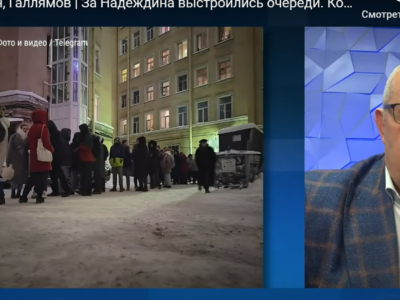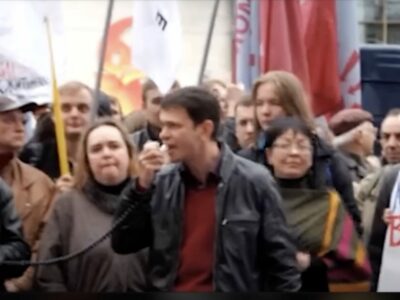
Created by Sydney Allen with Canva pro.
February 24, 2024, marks the second anniversary of Russia’s full-scale invasion of Ukraine, a country now entering its third year of massive destruction that has caused the death of at least 20,000 civilians and servicemen and women. This adds to the toll of Russia’s 2014 war that led to its ongoing occupation of Crimea and parts of Eastern Ukraine and several thousand deaths.
Support for Ukraine has grown from being mostly humanitarian and political in early 2022 to economic and, finally, military as well as diplomatic by the end of 2023. The US, the UK, and countries in the EU close to Ukraine were among the first to call for full and military support to Kyiv and have since been joined by others in Europe, East Asia (besides China and North Korea), and elsewhere. But that support is also reaching its limit because of Ukraine fatigue but also because another war started in the Middle East in Gaza, channeling its own share of media attention, money, weapons, and political engagement on different sides.
In Ukraine, an alliance of civilians and military forces continues to resist. While elections supposed to take place in March 2024 cannot take place under martial law, President Volodymyr Zelenskyy retains clear support inside the country. Several million Ukrainians — the vast majority of women and children — live as refugees in Europe, North America, and elsewhere.
For more about the lived experience of the war, read also War Time Stories from Ukraine
Russia, which lost around 50,000 soldiers and a few civilians, claims it is determined to continue what it still calls a “Special military operation” — yet opposition to the war mounts among wives of soldiers, non-Russian nations, LGBTQ+ groups, and what remains of Russian opposition inside the country.
For more, read Opposing Putin: A multitude of voices
Meanwhile, the world continues to assess its own views and roles in regard to Russia’s invasion: countries like China see it as an economic and diplomatic opportunity to sell its goods and services and increase its influence over Russia; others see their societies reacting in fragmented ways: while war is always business for some, civil society and media might take opposite views.
For more, read Understanding the link between Ukraine and Taiwan
Global Voices continues to provide international content illustrating the need to understand different contexts and lived experiences of those who are closely or remotely affected by this war. In 2024, it is also increasing stories written by people from Ukraine.
Stories about Entering a third year of war in Ukraine
Moscow photographer captures the capital in military frenzy
For two years now, Alexander Gronsky has been documenting what Moscow looks like and how it lives during the war and how the war intrudes into the urban space.
Ukrainian men running from mobilization: An uncomfortable topic no-one wants to discuss
“How to flee from Ukraine to Moldova” is googled by women, children, and the elderly, but also men of military age who can't or don't want to fight
How the North Caucasus became one of Russia’s arms for imperial policy in Ukraine
The region may may seem loyal to the central authorities, but it took Kremlin about a hundred years of repression and killing tens of thousands of locals to achieve this.
New song titled ‘Mom has a Secret’ features mothers from Russia who are anti-war activists
All of the women featured in the video for the song, as well as Monetochka herself, are mothers but also high profile activists who oppose the war and the regime.
Despite escalating sanctions, key machines imported from East Asia sustain Russia’s war effort in Ukraine
Despite sanctions against Moscow in place as early as 2022, Asia remains a major source of key imports for Russia's war effort, including in the area of dual use machines.
We can do more to help Ukraine
Two years and thousands of sanctions later, Moscow’s war capacity remains intact — Russia keeps bombing Ukraine as much, if not more,than in February 24, 2022 when the full scale invasion began.
Hundreds of thousands supported anti-war candidate in Russia but he was banned from elections
Boris Nadezhdin and Yekaterina Duntsova happened to be the main figures of the Russian elections in March 2024, although neither of them are going to be on the ballot
Fleeing home as a queer Ukrainian
After her own escape from Kherson just before Russian occupation, the LGBTQ+ activist coordinated with international volunteers and raised funds to help others evacuate from the city.
Documentary about the protest of soldiers’ wives, sisters and mothers created in Russia
Women demanding 'demobilisation' say: "Our topic, it's kind of forbidden. Do you understand? I'm scared to say what I think. I'm scared that I might never see my husband again."
Ukraine prepares to serve veterans with disabilities
By the time the war ends, Ukraine will get around a million and a half veterans. This is a huge number, which is beyond anything comparable across the neighboring countries
Graves of Nepali migrant soldiers in Russia shocked their family members
Russia is recruiting job seeking Nepali migrants under a Special Military Operations agreement to fight for the country at the Russo-Ukrainian War and a number of Nepalis had been killed.
Russian artist Alexandra Skochilenko addresses the court in Saint Petersburg at her trial over anti-war messages
"My trial, widely followed in Russia and globally, will make history, regardless of the verdict. You're not judging a terrorist, extremist, or even a political activist. You're judging a pacifist."
The role of AI in Russia's invasion of Ukraine: Interview with expert Anton Tarasyuk
To understand how AI shapes an asymmetric war in Ukraine against a much larger Russian aggressor, Global Voices talked to Anton Tarasyuk, a data and AI expert based in Kyiv.
While in exile in Lviv, Ukraine, a Crimean Tatar woman promotes her community through cuisine
"It is about the nostalgia of those people who lived in Crimea, visited Crimea, or only dreamed of visiting it."
How Russians fought Putinism: A documentary
It is incorrect to say that the people in Russia did not resist the emergence of Putinism — they resisted, many times and in many ways, albeit unsuccessfully.
A story from a Russian POW camp in Ukraine
A year ago, this camp was a regular penal colony for Ukrainian prisoners, but its purpose was quickly changed to make it a temporary accommodation for thousands of Russian citizens.
Ukrainians in one of the most war-torn towns face grave realities but avoid despairing
In many respects, no matter when and how Russia's invasion of Ukraine ends, there will be no immediate happy ending for villages, towns, and cities like Izyum.
One traitor a day: The state of treason cases in Russia
"Holod" magazine has exposed a record number of criminal cases of treason and espionage, which are now being initiated more frequently than during the post-Stalin era in the USSR
The story of a transgender person in an occupied city in Ukraine
Knowing the homophobic Russian state policy, members of the LGBTQ+ community tried to avoid the Russian occupiers, fearing they might face increased persecution because of their gender or sexuality.
Yevgeny Prigozhin died in a plane crash. Did Russians know who he was?
In a poll conducted in Russia three weeks after the mutiny of Yevgeny Prigozhin and his Wagner group, only a third of respondents (33%) said they knew about “the military crisis that occurred in Russia on June 24.”
What a country at war can look like: A journey across Ukraine in photos
Life is flourishing in Ukraine but subtle signs and reminders of the full-scale war can be seen and felt even in the places most distant from the actual frontline.
























